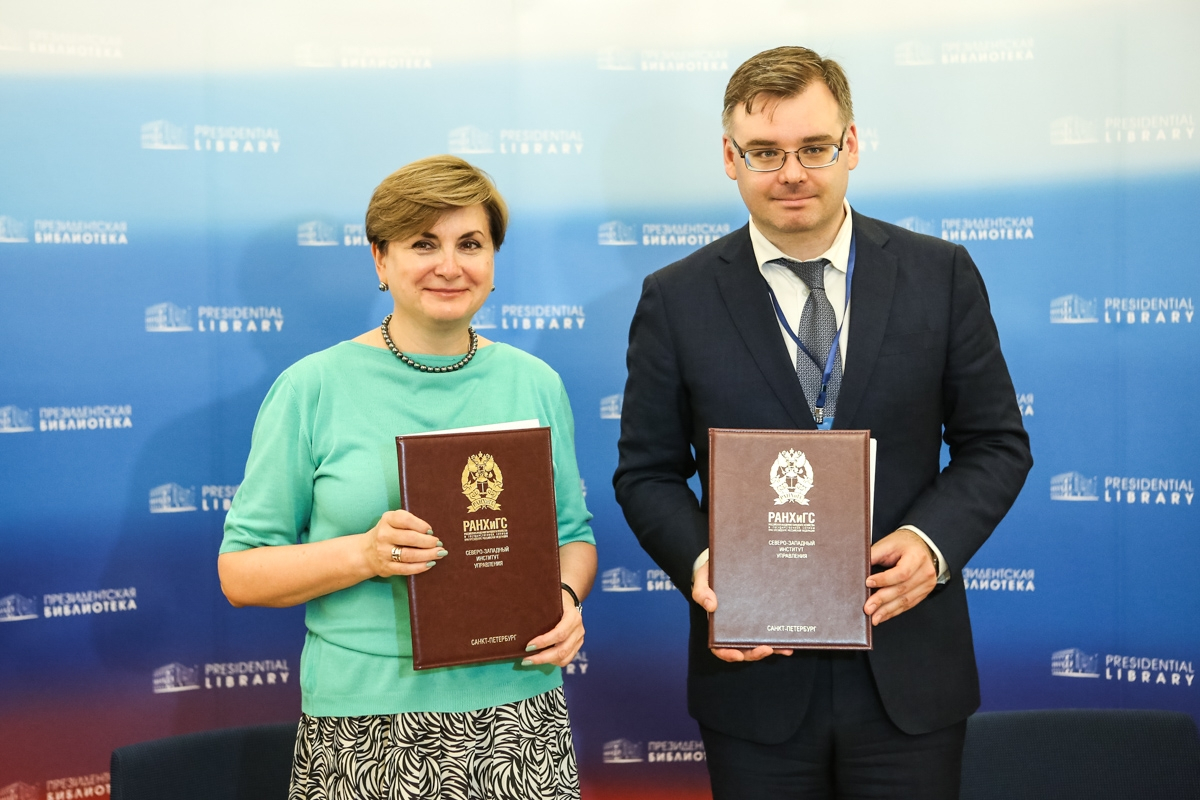St Petersburg University and RANEPA to develop and launch joint online courses

St Petersburg University and the Russian Presidential Academy of National Economy and Public Administration (RANEPA) have partnered in the field of online education. The agreement was signed by Marina Lavrikova, Senior Vice-Rector for Academic Activities and Teaching Methods at St Petersburg University, and Dmitrii Mereshkin, Vice Director for Science at the Russian Presidential Academy of National Economy and Public Administration.
St Petersburg University launches online academic programmes in public procurement
The agreement provides for the development of joint guidelines for designing online courses and the exchange of experience within fully online or blended academic programmes using MOOCs. Academic programmes will also be taught using open online courses on the basis of a network agreement. Under the agreement, the parties intend to inform each other about modern forms of online learning, as well as provide mutual methodological support within blended academic programmes.
According to Marina Lavrikova, Senior Vice-Rector for Academic Activities and Teaching Methods at St Petersburg University, reaching the cooperation agreement will make it possible for the University to increase the number of authors of online courses and define new topics for the MOOCs.
The Russian Presidential Academy of National Economy and Public Administration employs experts not only in the field of municipal governance but also professionals in various fields. They include historians, political theorists, lawyers, and digital management professionals, who are involved in specialist training in the field of public administration.
Marina Lavrikova, Senior Vice-Rector for Academic Activities and Teaching Methods of St Petersburg University.
‘I believe therefore that we can achieve better results if we combine our efforts,’ she highlighted.
Using e-learning and distance learning technologies in the processes of learning and teaching will enable the universities to enhance not only degree programmes, but also non-degree ones. ‘Every year, the University opens new non-degree programmes, including those that are designed for civil servants. Total number of non-degree programmes surpasses several hundreds,’ said Marina Lavrikova. ‘These days, being fully online, any non-degree programme becomes more interesting for students because it enables a wider audience to gain access to the content created by the universities. Thus, our cooperation will create additional opportunities for officials.’
St Petersburg University is a leader in the field of online learning among Russian universities. It ranks first on the national open learning platform ‘Open Education’ both in terms of the number of courses delivered and the number of students who take them. In addition, St Petersburg University is among the top three universities in the world in terms of the number of online courses which are available on the largest international online learning platform 'Coursera'.
Over the past four years, the external student audience for University courses has surpassed three million, and we see the dynamics of its growth.
Vladimir Starostenko, Director of the Centre of E-Learning Development at St Petersburg University.
‘Last year, during the pandemic in the spring semester, more than 450,000 users of the Open Education platform studied St Petersburg University courses. Every year, the number of students who give positive feedback upon completing the courses is increased,’ emphasised Vladimir Starostenko.
One of the first joint projects of St Petersburg University and the North-West Institute of Management of the Russian Presidential Academy of National Economy and Public Administration was the development and testing of financial mechanisms to support student mobility within academic programmes in 2022–2024. The experiment was aimed at: promoting and developing opportunities for student mobility; and the interaction with partner universities. The representatives of the University joined the working group which was formed in the spring 2021 as a part of the experiment.
These days, mobility programmes primarily give students the opportunity to make their own choices: studying online courses at other universities; listening to lectures given by leading professors and teachers from all over the Russian Federation; and upon successfully completing the programme, the possibility to transfer credits to their university.
Academic mobility develops competencies which are important and useful for students: flexible thinking, critical thinking, self-regulated learning, as well as communication skills.
For institutions, mobility programmes play an important role in strategic initiative due to the fact that: teachers share their experiences; universities collaborate; and new projects and innovative products are launched.
The experiment in the student mobility was initiated by the President of the Russian Federation and stated by the Resolution of the Government of the Russian Federation ‘On conducting an experiment within academic programmes in 2022-2024 funded with federal budget allocations based on the submission of certificates.’

